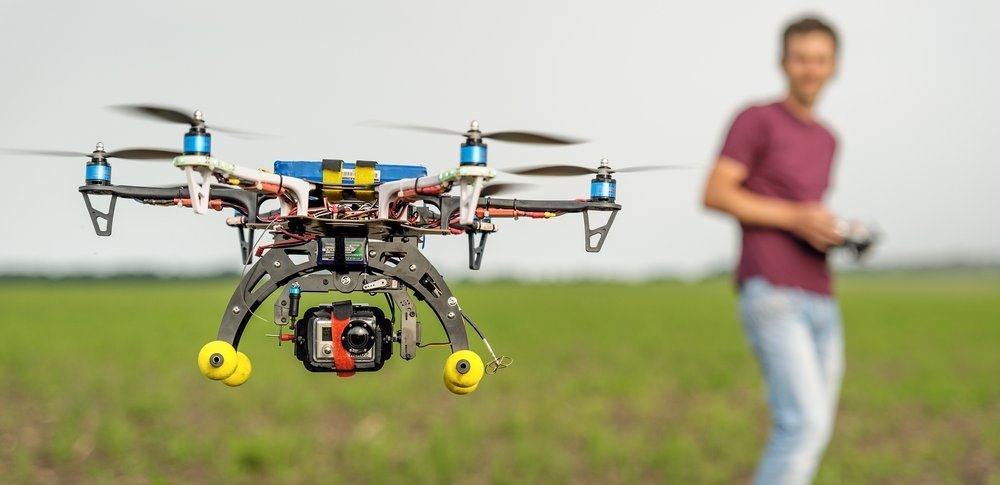Swiggy, Zomato, Dunzo Allowed To Test Drones With Long-Range, Heavier Payload

Swiggy, Zomato, Dunzo Allowed To Test Drones With Long-Range, Heavier Payload
SpiceJet and Reliance Industries backed start-up Asteria Aerospace has given approval to 13 consortia including delivery startups like Dunzo, Swiggy and Zomato to test fly beyond visual line of sight (BVLOS) drones.
Read to find out more…
Contents
13 Associations Registered To Do Drone-Testing!
Last year, the country announced plans to allow experimental long-range drone flights before framing a policy for the sector. This development comes as Directorate General of Civil Aviation (DGCA) has given the go-ahead a little over a year after the announcement.
Nagendran Kandasamy, founder and director of Throttle Aerospace, which received approval from the DGCA in March along with Dunzo said, “We will start flying from the first week of July and plan to clock around 120 hours of flights in two and a half months.” The testing of the unmanned vehicles either carry payloads or survey vast swathes of land is likely to begin in the first week of July.
A single window clearance for owners and operators to register their drones saw over 20,000 entries earlier this year. That is still a far cry from the 400,000-odd commercial drones and over 1.2 million recreational drones in the United States. Even though China and the United States are way developed in this sector, this will mark the first steps in India’s plan to develop local drone-based services capabilities.
Kandaswamy said that the company initially planned to roll out the testing procedures much sooner, however, the COVID-19 resultant lockdowns hampered the plans.
How Are Diverse-Sectored Consortia’s To Carry Out Drone Testing?
The crisis caused by the pandemic also delayed the approval of the DGCA to May end for 11 of the 13 shortlisted consortia.
For Dunzo, Swiggy which has partnered with Washington-based ANRA Technologies and Zomato which is affiliated with the Clearsky Flight Consortium, according to sources, it is about getting packages delivered seamlessly to consumer doorsteps via drones.
For others like Nandan Nilekani-backed ShopX, its tests will focus on using drones for B2B logistics.
Throttle Aerospace will look into moving medical supplies such as vaccines into remote areas. It will also ultimately transport live organs via drones from one hospital rooftop to another.
What is the Execution Process of the Tests?
The private industry consortium will need to clock at least 100 hours of flight time in airspace. This is designated by the Airports Authority of India and should be carried out by September 30. The logs will need to be submitted to the DGCA. The DGCA is hoping to use data from the experiments to frame a policy for BVLOS drones before year-end.
A senior government official on the condition of anonymity said, “Once they (the consortia) complete their flights and submit their logs, then we can really understand what will need to be the specifications required for BVLOS.” He also said, “Our plan was to have the draft policy out by August, but that got pushed because of the COVID-19 pandemic.”
Currently, the 13 experimental testings are largely split into drones doing surveillance and delivery.
Why Is Drone-Industry The Next Big Thing?
India is looking at these experiments as a way of fast tracking its policy and preparing the local industry for a major push into the drone services segment globally, multiple government officials and industry participants told ET.
Unlike other forms of aviation, drones are cheap to manufacture and the expense is in moving away from hardware into services.
Another government official working closely on India’s drone master plan said drones do not require the state to sink billions of dollars into R&D unlike other emerging technologies such as Artificial Intelligence and quantum computing. He added, India’s strengths in software, geospatial imaging and services will make it the ideal provider of services atop drones.
“Our information technology services giants already work with the world’s biggest power generators, electricity transmission companies, oil pipeline companies and offer them end-to-end services to manage their assets. Why can’t we now out of India offer to manage their drone fleets which will reduce their maintenance costs by hundreds and thousands of crores?”
India’s path of success in the drone-industry is still a long one!

Comments are closed, but trackbacks and pingbacks are open.